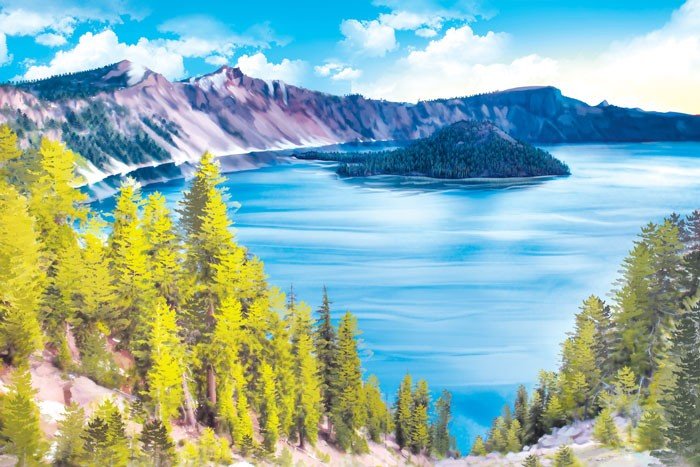Any large water-body that is surrounded by land is called a lake. Lakes are generally defined as temporary water-bodies and are one of the most valuable and beautiful natural resources on the Earth. Lakes are found in every environment (mountains, deserts, plains or near seashores) and in all the continents. These vary greatly in length and depth as well. Small lakes are called ponds and very big lakes are called seas. The water in lakes comes from rain, melting ice, snow and ground water seepage. Most of the lakes contain fresh water. Lakes are classified into three ways: (1) on the basis of the types of nutrients the lakes have, (2) on the basis of the way water mixes, and (3) on the basis of the kinds of fish that live in them.
The continents such as North America, Africa and Asia contain about 70% of the total lake water of the world.

Lake Baikal in Russia is the deepest lake in the world that holds about 20% of the Earth’s unfrozen surface water.

